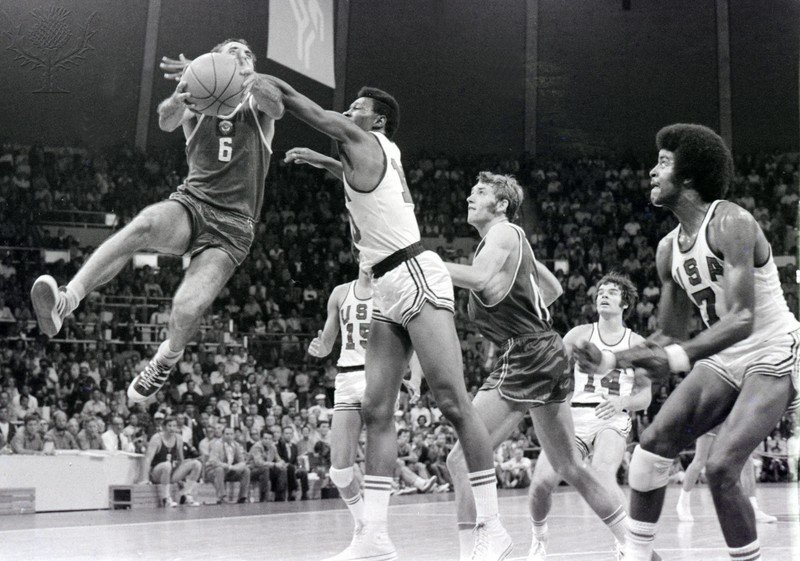In the 2019 NFC Championship Game, quarterback Drew Brees lined up under center inside the five-yard line to make a game-winning pass to send the New Orleans Saints to the Super Bowl. He dropped back, threw to receiver Tommylee Lewis, and it looked like it would be a touchdown until cornerback Nickell Robey-Coleman pushed Lewis in the back and broke up the pass, leading to the Rams having enough time to drive down the field and nail a field goal to send it into overtime, and eventually win the game in overtime to punch them a ticket to the Super Bowl. However, there was a major probability that the Saints would have been the ones going to the Super Bowl if the referee did call out the Rams for pass interference.
Because of the referees’ ability to impact the outcome of a game in such a manner, there has been much controversy. The subject of referees has been problematic in the sports world for many years, and many people want to reprimand referees over things that happened 20 years ago.
For another example, this time in basketball, we go back to the 1972 Olympic Games, in the Basketball Final. The United States versus Russia match was the most anticipated matchup of the year, and so far, it was living up to the hype. During the fourth quarter, with ten seconds to go, while the US was down by one, player Doug Collins of the US steals an inbound pass, sprints down the court, and banks in a layup as the clock runs out. So the US wins, right? Nope. According to records, the Soviet Union took a timeout with one second remaining, just as Collins released the ball. If you are a true fan of the game, you would know that you cannot take a timeout while you are on defense, only offense. So the game’s over? No. After referee Renato Righetto ruled that the timeout was invalid, FIBA Secretary General Renato William Jones had other plans. With no right to do so, he got out of his seat, went over to the scorer’s table, and overturned the call, blatantly disrespecting the rules of the game. They reset the clock to one second, and on the baseline, Soviet Russia drew up a play that would go down in history. Ivan Edeshko, on the line, chucked the ball the length of the court, over the US players, to 6-foot-11 center Alexander Belov, who caught it and played it in for the win. The United States lost, and won their first silver medal ever, while Russia won the gold just because of the referees, making it one of the most controversial calls in history.
Here is a video from the last few seconds of the game.
In soccer, this has happened, as well. In a 1986 FIFA World Cup game against England, Argentina needed a goal to win the game and not go into a penalty shootout. One of the Argentinan players was soccer legend Diego Maradona, and he decided to take matters into his own hands, literally. The game had been tight up until this point, and nobody was budging, so when the soccer superstar got his chance, he made the most of it. In the 51st minute of the game, a cross came into Maradona, and as the goalkeeper leaped to save the ball, Maradona hit it just a little bit up with his hand and was able to head the ball into the goal to seal the win for Argentina, and to move onto the next round. Referee Ali Bin Nasser has never blamed himself for not seeing the clear handball, nor apologized, and he has almost completely disappeared from the soccer world as of today.
Here is a video of the crucial handball.
The fourth and final sports world that controversial reffing has been linked to is the world of Major League Baseball. On May 2nd of 2012, the Colorado Rockies played against the Los Angeles Dodgers in Colorado. It was the top of the sixth, with two out. An outfielder for the Dodgers, Jerry Hairston Jr., is at the plate. He hits a ground ball to Rockie’s third baseman Chris Nelson, who fielded it cleanly, but the throw pulled star first baseman, Todd Helton, off the bag. Hairston flew down the line and hit the bag with time to spare, and Helton was not even on it, but umpire Tim Welke, who was by the second base and had no right to make a call, called Hairston out, even though Helton never touched the bag! I got to say, there are a lot of bad calls in sports history, but this one is the worst one I have seen yet. You know it’s bad when even Todd Helton says: “Hey, ump, I appreciate the help, but honestly, that guy was safe by a mile.”
This is by far the funniest and worst call in sports history, so take a look (skip to three minutes): https://www.youtube.com/watch?v=mzjk_yH9N2Q.
Referees are crucial to sports, but everybody makes mistakes. Some of these blown calls, though, are game-changing moments and need to be reviewed before being taken into account. We need not change in the people reffing, but the people controlling the review booth.
